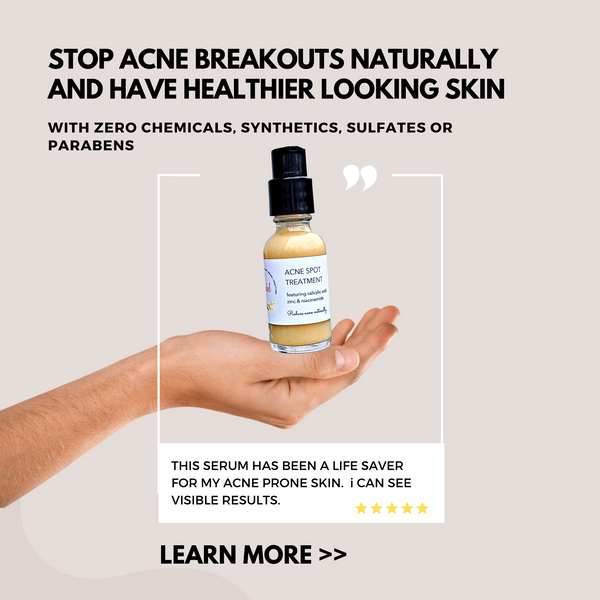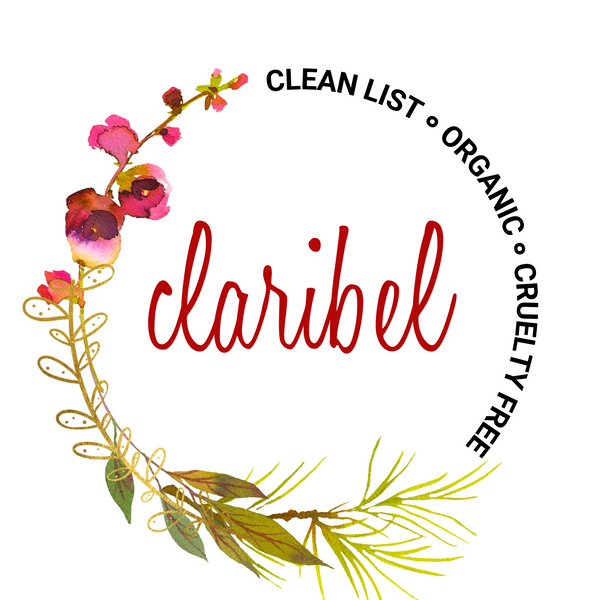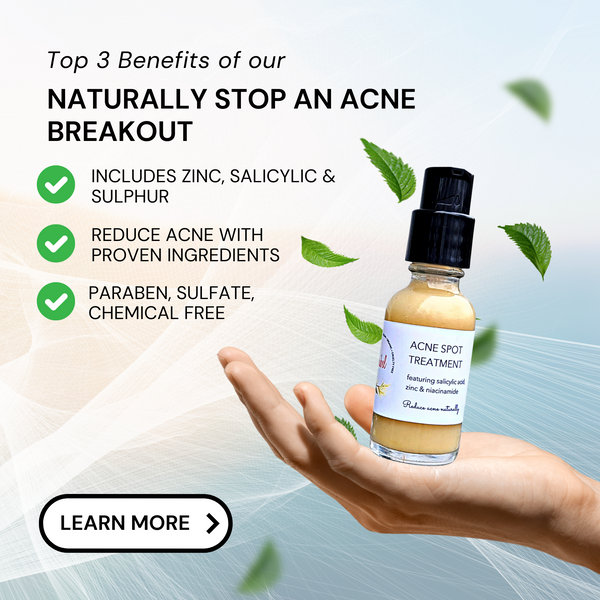
How to Stop an Acne Breakout: 7 Holistic Tips
Acne breakouts can be frustrating and distressing, affecting individuals of all ages. To effectively address this common skin condition, it is crucial to understand its underlying causes. Acne occurs when hair follicles become clogged with oil, dead skin cells, and bacteria. Hormonal changes, excess oil production, and certain medications can contribute to the development of acne.
The severity of acne breakouts can vary, ranging from mild blackheads and whiteheads to more severe forms like cystic acne. Understanding the type and cause of your acne will help you choose the most appropriate holistic approach to address it.
Common causes of acne breakouts
Several factors can contribute to the onset of an acne breakout. Hormonal changes, particularly during puberty, can trigger the overproduction of oil, leading to clogged pores and acne formation. Stress is another common cause, as it can disrupt hormone balance and increase sebum production.
Poor skin care practices, such as using harsh cleansers or not properly removing makeup, can also contribute to acne breakouts. Additionally, certain medications, like corticosteroids or lithium, may cause acne as a side effect. It is essential to identify the root cause of your acne to effectively manage and prevent future breakouts.
The drawbacks of traditional acne treatments
Traditional acne treatments often target the symptoms rather than addressing the underlying causes of acne breakouts. Common over-the-counter treatments, such as benzoyl peroxide and a variety of alcohols, can be harsh on the skin and may cause dryness, redness, and irritation. Prescription medications, like antibiotics or isotretinoin, can have significant side effects and may not provide long-lasting results.
Furthermore, traditional treatments often fail to consider the holistic factors that contribute to acne breakouts. Taking a more comprehensive approach that includes natural remedies and lifestyle changes can be a more effective and sustainable way to stop acne breakouts.
Holistic approaches to stop an acne breakout
Holistic approaches focus on treating the whole person rather than just the symptoms. When it comes to acne breakouts, this means addressing the root causes and adopting a holistic skin care routine. By combining natural remedies, lifestyle changes, and mindful practices, you can effectively manage acne and achieve clear, healthy skin.
Natural remedies for treating acne
Natural remedies can be a gentle and effective way to treat acne breakouts without the harsh side effects of traditional treatments. Tea tree oil, for example, has antimicrobial properties that can help reduce acne-causing bacteria. Applying a diluted solution of tea tree oil to affected areas can help alleviate inflammation and promote healing.
Another natural remedy to consider is witch hazel. Witch hazel acts as an astringent, helping to remove excess oil and reduce redness and inflammation. Applying witch hazel to the skin after cleansing can help soothe acne-prone areas.
Additionally, aloe vera gel can provide soothing relief and promote skin healing. Its anti-inflammatory properties can reduce redness and swelling associated with acne breakouts. Applying a thin layer of aloe vera gel to affected areas before bed can help calm the skin overnight.

Lifestyle changes to prevent acne breakouts
In addition to natural remedies, making certain lifestyle changes can help prevent acne breakouts from occurring. Stress management techniques, such as meditation, yoga, or deep breathing exercises, can help regulate hormone levels and reduce the likelihood of acne flare-ups.
Regular exercise is also beneficial for maintaining clear skin. Physical activity increases blood flow, which helps nourish the skin and remove toxins. Sweating during exercise can also unclog pores and prevent acne breakouts. Remember to cleanse your skin thoroughly after exercising to remove sweat and bacteria.
Our Acne Spot Treatment contains all of the effective plant derived ingredients your skin needs to prevent and heal breakouts.
Dietary tips for clear skin
A healthy diet plays a significant role in preventing acne breakouts. Avoiding foods that are high in refined sugars and processed carbohydrates can help regulate insulin levels, reducing the risk of hormonal imbalances that contribute to acne. Instead, opt for a balanced diet rich in fruits, vegetables, whole grains, and lean proteins.
Incorporating foods with anti-inflammatory properties, such as fatty fish, nuts, and green leafy vegetables, can also support clear skin. These foods contain essential fatty acids and antioxidants that help reduce inflammation and promote healthy skin.
Staying hydrated is equally important. Drinking an adequate amount of water daily helps flush out toxins and keeps the skin hydrated and supple. Aim to consume at least eight glasses of water each day to maintain healthy skin.
Skin care routines for acne-prone skin
Establishing a proper skin care routine is essential for managing acne breakouts. Start by cleansing your face twice a day using a gentle cleanser suitable for acne-prone skin. Avoid harsh scrubs or cleansers that can irritate the skin and exacerbate acne.
After cleansing, apply a non-comedogenic moisturizer to keep the skin hydrated without clogging pores. Look for products that contain ingredients like hyaluronic acid or ceramides, which help retain moisture without causing breakouts.
Regular exfoliation can also help prevent the buildup of dead skin cells and unclog pores. However, be cautious not to over-exfoliate, as this can irritate the skin. Choose a gentle exfoliator and limit exfoliation to once or twice a week.
Other holistic practices to consider
In addition to natural remedies and skin care routines, there are other holistic practices that can complement your efforts to stop acne breakouts. Acupuncture, for example, is an ancient Chinese practice that can help balance hormones and improve overall skin health. Consult with a licensed acupuncturist to explore this option further.
Another holistic approach to consider is stress reduction through aromatherapy. Essential oils, such as lavender or chamomile, can help calm the mind and reduce stress levels. Incorporate these oils into your skin care routine or use them in a diffuser to create a calming atmosphere.
Our Acne Spot Treatment contains all of the effective plant derived ingredients your skin needs to prevent and heal breakouts.
7 Tips: How to Stop an Acne Breakout
Wash Twice a Day. It’s important to remove excess dirt and oil from the skin by washing regularly. Twice a day can help keep skin free of bacteria and dirt, which is important for keeping pores clear and healthy. Over washing the face may cause the skin to become dry, which can aggravate pimples. Choose a mild cleanser that your skin can handle twice a day, and save the more involved treatments for just a few times a week.
Exfoliate Gently. There is manual exfoliation and then there is ingredient causing exfoliation. You can choose a soft washcloth, gentle cleansing pad, or a gentle facial brush for some good manual exfoliation options. If you’d like to try an ingredient causing exfoliation product, start with something that is considered mild and work your way up to a strength you’re comfortable with. Glycolic and other acid products are great for exfoliating away the dead skin cells that can often clog pores, and they can also keep scars and inflammation at bay and at a minimum.
Reduced Dairy and Sugar in Diet. According to the American Academy of Dermatology, foods with a high glycemic index may increase the risk of developing acne or make acne worse. Try to reduce sugar intake a bare minimum. Dairy products, especially skim milk, may also increase a person’s risk of developing acne. A person may want to cut back on a particular food group, to see if their skin improves.
Keep Hair Clean and Consider Your Hair Care Products. Avoid heavy hair products that can transfer to your face, like oils, pomades, wax based products, etc.
Refrain from Picking and Touching Your Face. Your hands encounter grime and bacteria constantly throughout the day. And each time you touch your face, some of those pore-clogging impurities may get transferred to your skin. And while it is very tempting to pick and pop a breakout, this can cause bleeding, scarring, and spread the infection and bacteria to other pores, causing more breakouts.
Reduce Stress. It’s harder to do and easier to say, but try to reduce stress and drama in your life. Stress doesn’t cause pimples, but it may make them worse. According to the American Academy of Dermatology, research has shown that when you’re stressed, your body produces more oil-stimulating hormones.
Have a Simple Product Routine and Ingredient List. Choose products and cosmetics that are labeled "noncomedogenic," meaning it should not cause acne. Read the ingredients list on the product label before buying. A clean, simple ingredients list is your best choice. Avoid chemicals and synthetics that can cause irritation and clog pores.
6 Ingredients to Help Stop an Acne Breakout
Tea Tree Oil. Tea tree oil is a popular choice for treating acne because of its anti-inflammatory and antimicrobial properties. It's thought to calm redness, swelling, and inflammation. It can help to prevent and reduce acne scars, leaving you with smooth, clear skin.
French Green Clay. French green clay is an absorbent, mineral-rich clay with healing abilities. According to 2010 research, French green clay has potent antibacterial properties. It helps draw out impurities, reduce inflammation, and absorb excess oil that may lead to pimples. You can mix it with your favorite mask or scrub, or create your own with honey or plain yogurt.
Salicylic acid. Salicylic acid is a naturally occurring compound, which can be isolated from the bark of the willow tree. Salicylic acid penetrates into your skin and works to dissolve the dead skin cells clogging your pores.
Retinoids. Topical retinoids are derived from vitamin A, and can either be an over the counter product or a prescription (which tend to be very harsh). These treatments can also get rid of excess dead skin cells and reduce inflammation.
Alpha Hydroxy Acids. Acne pimples occur when your pores are clogged with a combination of dead skin cells, oil (sebum), and bacteria. Exfoliating with AHAs can help loosen and remove the clog. Continued use may also prevent future clogs from forming. AHAs may also reduce the size of enlarged pores, which are commonly seen in acne-prone skin. Skin cell turnover from exfoliating glycolic and lactic acids can even reduce acne scars. Some acne products also contain other AHAs, such as citric and malic acids, to help soothe inflamed skin.
Sulfur. Elemental sulfur can be found near hot springs and volcanic regions in many parts of the world, especially along the Pacific Ring of Fire; such volcanic deposits are currently mined in Indonesia, Chile, and Japan. Sulfur helps dry out the surface of your skin to help absorb excess oil (sebum) that may contribute to acne breakouts. It also dries out dead skin cells to help unclog your pores.
Our Acne Spot Treatment contains all of the effective plant derived ingredients your skin needs to prevent and heal breakouts:
Conclusion
Addressing acne breakouts requires a holistic approach that considers the root causes and incorporates natural remedies, lifestyle changes, and mindful practices. By understanding the underlying causes of acne and adopting a comprehensive approach, you can effectively manage and prevent acne breakouts without relying solely on traditional treatments.
Embrace natural remedies, make lifestyle adjustments, and explore holistic practices to achieve clear, healthy skin. Take charge of your skin care routine and empower yourself to stop acne breakouts naturally.


